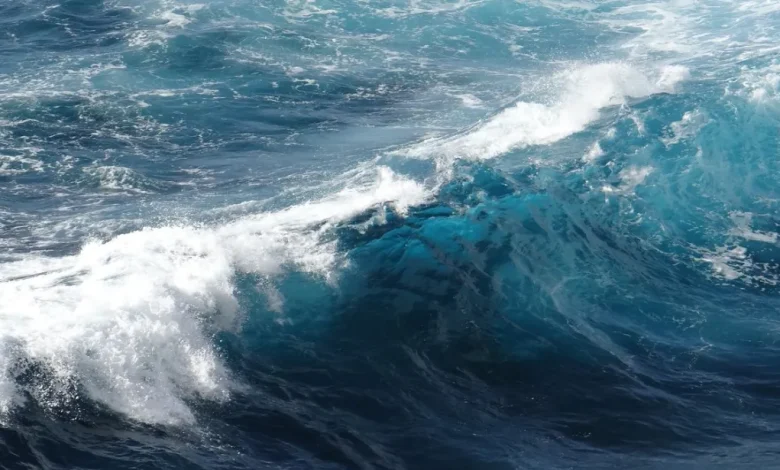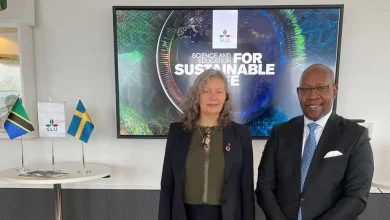Shared Seas, Shared Future: Africa’s strategic role in Global Ocean Protection

ON June 18th 2023, a submissible called Titan, operated by Ocean gate expeditions, became global breaking news when it tragically imploded, about 4000 metres below the North Atlantic Ocean surface, during a dive to the wreck of the Titanic, that famous ocean liner that sank April 15th 1912, after hitting an iceberg during its maiden voyage at 11:40pm, April 14th, 1912. But this opinion is not written about the tragic incidences, between the white Starline Titanic, or the Titan submissible, that occurred about 111 years, 2 months and 3 days apart, but on the importance of our Oceans. From the foggy shores of Newfoundland to the coral reefs off Zanzibar, the ocean is more than a boundary, it is our shared lifeblood.
For coastal communities in Dar es Salaam and those in San Francisco or Nova Scotia alike, the tides are changing. Rising temperatures, vanishing fish species, plastic-strewn shorelines these are no longer distant warnings.
They are a lived reality. At the Ferry Fish Market in Dar es Salaam, oncerich catches have dwindled overtime and this is not a specific Tanzanian phenomenon, but elsewhere, where countries have access to the sea. A species that cost little just five years ago is now out of reach for many families. I see it in the anxious faces of fishmongers and the baskets of buyers. This isn’t just an East African challenge, it’s a global one.
The health of our oceans is in crisis. As the world gathered for the UN Oceans Conference in Nice France, June 7th to June 13th 2025, much of the conversation is centred on urgent action and multilateral cooperation. Yet, questions remain: Can nations with unequal resources collaborate meaningfully? Can developing countries like mine rich in biodiversity but struggling in high-tech marine capacity, play a leading role in shaping the future of our oceans? Yes, countries should not only do what they can, but do what they must. Oceans continue to harbour more biological diversity than land.
Why the Oceans matter more than ever
Our oceans regulate the climate, feed billions and support cultural traditions from Maine to Madagascar. But they are under siege. The United Nations’ Sustainable Development Goal 14 Life Below Water has sounded the alarm: over 90 per cent of fish stocks are fully exploited or overfished and climate-driven sea level rise is forcing nations like Kiribati, buying land in Fiji, as a contingency plan to relocate its population due to rising sea levels.
Indonesia is also to relocating its entire capital city. The challenges are vast: plastic pollution, acidification, coral bleaching, illegal fishing and the overexploitation of marine life. Africa, home to some of the world’s most fragile and biodiverse coastal ecosystems, is at the frontlines of these crises.
Africa’s voice and role must be elevated
It is often assumed that Africa is merely a recipient of global aid, but this is no longer the narrative we must accept. African nations, with their expansive coastlines and growing environmental leadership, are uniquely positioned to influence the global ocean agenda. However, capacity remains a significant barrier.
Few African nations possess advanced marine research vessels or satellite surveillance systems to monitor their waters. Yet, technology alone isn’t the sole answer. Political will, local knowledge and adaptive management can bridge many of these gaps. African nations must be supported but also empowered to co-lead marine governance. This includes embracing South-South cooperation, investing in marine science education and building regional enforcement mechanisms to curb illegal and unregulated fishing.
The needed leadership of the United States
The absence of the United States at the Nice Conference was conspicuous. Historically, the US has been a pillar in global environmental agreements from the Montreal Protocol to the Paris Agreement. Yet, on ocean policy, its leadership has waned. The US has authorised deep-sea mining in international waters a move criticised by scientists and NGOs alike for threatening biodiversity in unexplored ecosystems.
More critically, the US has yet to ratify the 2023 High Seas Treaty, which aims to place 30 per cent of the world’s international waters under protection by 2030. As of now, 49 countries have ratified it; 60 are needed for it to enter into force. Global environmental treaties do not succeed by the virtue of small nations alone.
They depend on the moral and political leadership of major powers. Including the Peoples Republic of China, the collective European Union and the United States. I do hope that the United States must return to the table, not only as a participant but as a leader, given its vast economic and technological influence in Marine and oceanography activities.
Multilateralism is the only path forward
The Nice Conference is not just another diplomatic event; it is a test of global unity. The High Seas Treaty, built on decades of negotiation under the United Nations Convention on the Law of the Sea (UNCLOS), is a milestone for marine protection. But its promise means little without implementation, enforcement and equitable access to marine resources for developing nations.
Multilateralism must evolve from summit declarations to collective accountability. Wealthier nations must commit to capacity-building, technology transfer and sustainable financing mechanisms for marine conservation. And all nations whether landlocked or coastal must view the ocean not as a resource to extract, but as a legacy to protect.
A call from Africa, for the world
When Honourable January Makamba as served as Tanzania’s Minister of State in the Vice-President’s Office responsible for Union Affairs and Environment circa, 2019, he actively banned the use of plastic bags and other toxic materials, a pivotal role of Tanzania, in protecting our oceans and the larger Environment.
The Republic of Kenya also banned on single-use plastics, followed by Gabon’s marine protected areas, a wave of leadership emerged in Africa. But, for strong and effective global impact, we need stronger global partnerships ones rooted in mutual respect, multilateralism and not paternalism.
The ocean’s story is not just scientific it’s human. It is the story of a fisherman on the Tanzanian coast, who normally navigate abundant waters by moonlight. It is the story of Arctic communities seeing their ice melt, of Gulf Stream shifts affecting hurricanes, of families across continents watching the seafood they once relied on, either becoming scarce and in some places disappear.
It is a story of Indonesia, transferring its capital from Jakarta, to Nusantara. It is not only as a question of overcrowding and congestion, but also a question of rising sea levels impacted by climate change. Global citizens across nations are all impacted by oceans. We may be oceans apart, but we are united in purpose. If we are to leave behind more than plasticladen shores and collapsed fisheries, we must act together with urgency, integrity and imagination. The ocean is not bound by borders. Neither should our commitment to save it be.
The writer is an Advocate of the High Court of Tanzania and Daily News contributing columnist on international affairs. Email: norvum728@ gmail.com | Mobile: +255747130688





